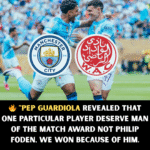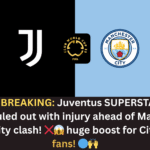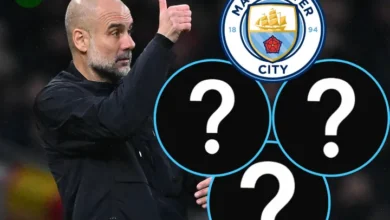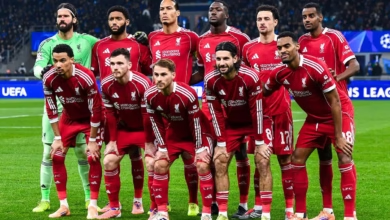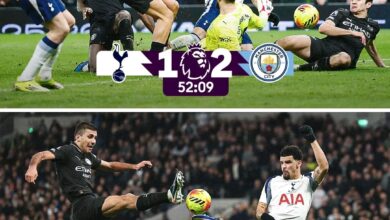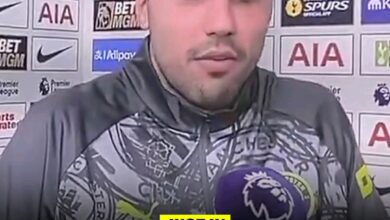Manchester City Club World Cup Preview: Comprehensive Injury Analysis and Tournament Outlook Introduction: The Citizens’ Global Ambition
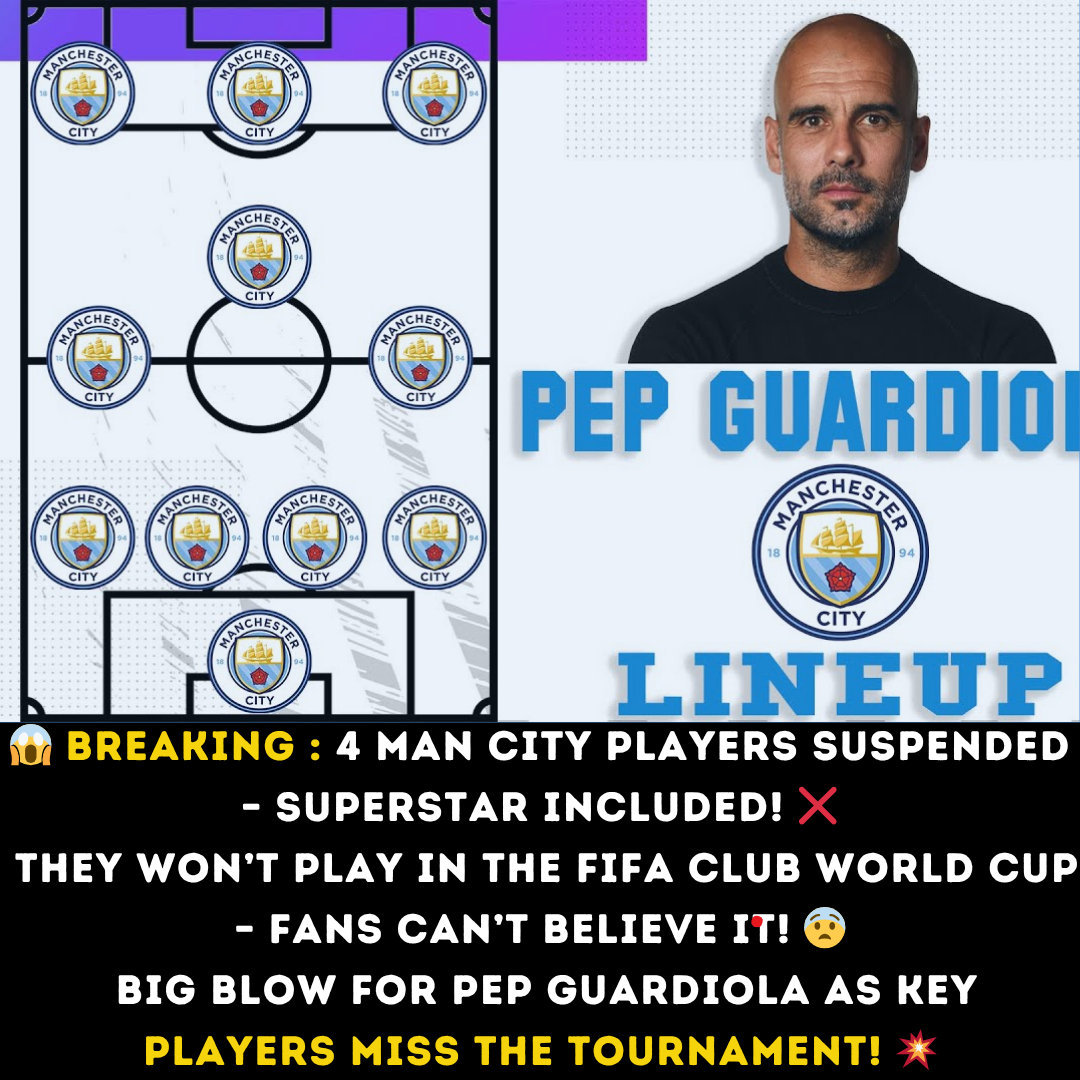
Manchester City stands on the precipice of another defining moment in their illustrious recent history as they prepare to embark on their Club World Cup journey. The tournament, which has evolved into one of football’s most prestigious competitions, represents an opportunity for Pep Guardiola’s side to add another significant trophy to their already bulging cabinet. As the Citizens prepare to face Wydad AC in their opening Group G encounter on Wednesday, June 18, 2025, the spotlight inevitably falls on squad availability and the physical condition of key players who will be instrumental in determining City’s success on the global stage.
The Club World Cup has undergone significant transformation in recent years, expanding from its traditional format to become a more comprehensive tournament that truly represents the pinnacle of club football worldwide. For Manchester City, a club that has systematically conquered domestic and European competitions under Guardiola’s stewardship, this tournament presents both an opportunity and a challenge. The opportunity lies in cementing their status as the world’s premier club side; the challenge comes in managing a squad that has endured the rigors of a demanding season while maintaining the hunger and intensity required to succeed at the highest level.
Guardiola’s Manchester City has become synonymous with tactical innovation, relentless pressing, and a possession-based philosophy that has redefined modern football. Their approach to the Club World Cup will undoubtedly reflect these principles, but the tournament’s unique format and the diverse playing styles they will encounter require careful preparation and strategic flexibility. The opening match against Wydad AC, the Moroccan champions, will serve as an important litmus test for City’s adaptability and their ability to translate their domestic and European success to the global stage.
Current Squad Status: Navigating Injury Concerns
As Manchester City prepares for their Club World Cup campaign, the medical department’s assessment of player availability has become crucial to Guardiola’s tactical planning. The current injury situation presents both challenges and opportunities for squad rotation, with two significant cases dominating the headlines and shaping the team’s preparation strategy.
John Stones: The Defensive Cornerstone’s Uncertain Return
The situation surrounding John Stones represents one of the most intriguing storylines heading into City’s Club World Cup opener. The English center-back, who has been a cornerstone of Manchester City’s defensive solidity for several seasons, has been sidelined since February following a thigh injury sustained during the team’s Champions League encounter with Real Madrid. This injury occurred at a particularly crucial juncture of the season, depriving Guardiola of one of his most trusted defensive options during the business end of multiple competitions.
Stones’ absence has been keenly felt throughout the spring months, as the defender’s unique skill set – combining traditional defensive robustness with exceptional ball-playing ability – makes him virtually irreplaceable in Guardiola’s system. His capacity to step into midfield, initiate attacks from deep positions, and provide the kind of progressive passing that modern center-backs require has made him an indispensable component of City’s tactical framework.
The timeline of Stones’ recovery has been carefully managed by City’s medical staff, with the club adopting a cautious approach to ensure the defender’s long-term fitness rather than rushing him back prematurely. The thigh injury, while not uncommon in professional football, requires careful rehabilitation to prevent recurrence, particularly given the demanding nature of Guardiola’s tactical system, which places significant physical demands on defenders who must contribute to both defensive solidity and attacking build-up play.
Recent developments in Stones’ recovery have provided cause for cautious optimism within the City camp. The defender’s return to full training represents a significant milestone in his rehabilitation process, indicating that the medical staff believes he has progressed sufficiently to handle the physical demands of competitive football. However, his classification as a “major doubt” for the Wydad AC encounter reflects the delicate balance between optimism and realism that characterizes modern injury management.
The potential return of Stones would provide Guardiola with invaluable tactical flexibility. His presence would allow for various defensive configurations, from a traditional back four to the more adventurous three-at-the-back system that has become a hallmark of City’s tactical evolution. Moreover, Stones’ leadership qualities and experience in high-pressure situations make him particularly valuable in tournament football, where mental resilience often proves as important as technical ability.
Should Stones be deemed fit for selection, his integration back into the starting lineup will require careful consideration. Tournament football’s unforgiving nature means that any player returning from extended injury layoffs must be carefully managed to prevent setbacks that could prove costly to both individual and team aspirations. Guardiola’s decision regarding Stones’ involvement will likely depend on multiple factors, including the player’s own assessment of his readiness, the medical staff’s confidence in his physical condition, and the tactical requirements of the specific opponent.
Mateo Kovacic: The Croatian Maestro’s Extended Absence
In stark contrast to the hopeful uncertainty surrounding John Stones, the situation regarding Mateo Kovacic presents a clear-cut case of unavailability that has already been factored into City’s tournament planning. The Croatian midfielder’s Achilles injury has not only ruled him out of the Club World Cup but has effectively ended his season, with his expected return date pushed back to the beginning of the next campaign.
Kovacic’s absence represents a significant blow to Manchester City’s midfield depth and tactical options. Since joining the club, the Croatian international has established himself as a crucial component of Guardiola’s midfield rotation, bringing a unique combination of technical proficiency, physical presence, and tactical intelligence that perfectly complements the manager’s possession-based philosophy. His ability to operate in multiple midfield roles – from the deeper-lying playmaker position to a more advanced creative role – has made him an invaluable squad asset.
The decision to undergo surgery on his Achilles injury underscores the severity of the problem and the club’s commitment to ensuring a complete recovery rather than attempting short-term fixes that might compromise his long-term career prospects. Achilles injuries are notoriously complex and require extensive rehabilitation periods, making the club’s conservative approach both medically sound and strategically prudent.
Kovacic’s absence from the Club World Cup squad means that Guardiola must rely more heavily on his remaining midfield options, potentially providing opportunities for younger players to step up and demonstrate their readiness for tournament football. This situation, while unfortunate from a squad depth perspective, could ultimately benefit City’s long-term development by exposing emerging talents to high-pressure situations and forcing tactical adaptations that might prove valuable in future competitions.
The Croatian’s injury also highlights the physical demands of modern football and the importance of squad rotation in maintaining player fitness throughout increasingly congested fixture schedules. His absence serves as a reminder of football’s unpredictable nature and the need for comprehensive squad planning that accounts for such eventualities.
Tactical Implications and Squad Adjustments
The injury situations affecting both Stones and Kovacic will inevitably influence Guardiola’s tactical approach to the Club World Cup, forcing adaptations that could ultimately shape the team’s playing style throughout the tournament. These absences, while challenging, also present opportunities for tactical innovation and player development that could benefit the club’s long-term objectives.
In defense, Stones’ potential absence would likely see Guardiola rely more heavily on his other center-back options, potentially altering the team’s defensive structure and ball progression patterns. The English defender’s unique ability to step into midfield positions and contribute to attacking phases means that his replacement must either possess similar qualities or the entire tactical system must be adjusted to compensate for different skill sets.
The midfield situation, with Kovacic definitively ruled out, requires Guardiola to redistribute responsibilities among his available players. This could mean increased playing time for emerging talents, tactical adjustments to accommodate different player profiles, or even positional shifts that see players operating in slightly modified roles to maintain the team’s overall balance and effectiveness.
Wydad AC: The Moroccan Challenge
Manchester City’s opening opponents, Wydad AC, represent the kind of challenge that makes the Club World Cup such a fascinating competition. The Moroccan champions bring their own unique playing style, tactical approach, and competitive spirit that could test City’s adaptability and mental resilience in ways that domestic competition might not.
Wydad AC’s qualification for the Club World Cup represents the culmination of their own successful campaign and their status as one of Africa’s premier club sides. Their inclusion in Group G alongside Manchester City creates an intriguing dynamic, with the Moroccan club undoubtedly viewing this encounter as an opportunity to test themselves against one of world football’s elite sides while simultaneously harboring ambitions of causing an upset that would reverberate throughout the football world.
The tactical approach that Wydad AC employs could force Manchester City to adapt their usual playing patterns and demonstrate the flexibility that has become a hallmark of successful Guardiola teams. African football’s emphasis on physicality, pace, and direct attacking play often presents challenges for European sides accustomed to more methodical, possession-based encounters.
For Manchester City, the Wydad AC fixture represents more than just a tournament opener; it serves as an opportunity to establish momentum, assess squad fitness levels, and fine-tune tactical approaches that will be crucial throughout the competition. The match will also provide valuable insights into how the team copes with the absence of key players and whether the tactical adjustments necessitated by injury concerns can be seamlessly integrated into their overall game plan.
Historical Context and Tournament Significance
The Club World Cup has evolved significantly since its inception, transforming from a relatively modest competition into a tournament that genuinely represents the pinnacle of club football achievement. For Manchester City, participation in this competition represents both validation of their domestic and continental success and an opportunity to achieve a form of global recognition that few clubs have managed to secure.
Guardiola’s relationship with the Club World Cup adds another layer of intrigue to City’s participation. His previous experiences in the competition, both successful and otherwise, provide valuable context for understanding his approach to tournament preparation and tactical planning. The lessons learned from past campaigns, combined with the tactical evolution that has characterized his time at Manchester City, suggest that the team is well-positioned to make a significant impact on the tournament.
The competition’s format, which brings together champions from different continents, creates unique challenges that domestic leagues simply cannot replicate. The diversity of playing styles, tactical approaches, and competitive mentalities represented in the tournament requires a level of adaptability and mental flexibility that distinguishes truly elite teams from merely successful ones.
Squad Depth and Rotation Strategy
Despite the injury concerns affecting key players, Manchester City’s squad depth remains one of their greatest assets heading into the Club World Cup. Guardiola’s ability to rotate players without significantly compromising the team’s overall quality has been demonstrated repeatedly throughout his tenure, and this tournament provides another opportunity to showcase the strength and versatility of the entire squad.
The absence of Kovacic, while unfortunate, opens opportunities for other midfield players to demonstrate their readiness for high-pressure situations. Similarly, uncertainty surrounding Stones’ availability could provide chances for alternative defensive configurations and player combinations that might prove valuable in future competitions.
City’s academy graduates and emerging talents may find themselves with increased opportunities to contribute to the team’s Club World Cup campaign. Tournament football often provides the perfect environment for young players to accelerate their development and establish themselves as viable options for future seasons.
Conclusion: Balancing Ambition with Pragmatism
As Manchester City prepares for their Club World Cup opener against Wydad AC, the injury situations affecting John Stones and Mateo Kovacic serve as reminders of football’s unpredictable nature and the importance of squad depth in achieving sustained success. While these absences present challenges, they also create opportunities for tactical innovation, player development, and squad bonding that could ultimately strengthen the team’s long-term prospects.
Guardiola’s track record of adapting to adverse circumstances and finding tactical solutions to personnel problems suggests that Manchester City remains well-positioned to mount a serious challenge for Club World Cup glory. The tournament represents another chapter in the club’s ongoing quest for global recognition and provides a platform for demonstrating that their success transcends domestic and continental boundaries.
The encounter with Wydad AC will provide the first indication of how successfully City has adapted to their current injury situation and whether the tactical adjustments necessitated by player unavailability can be seamlessly integrated into their pursuit of tournament success. As the Citizens embark on this global challenge, their ability to balance ambition with pragmatism, talent with tenacity, and individual brilliance with collective cohesion will ultimately determine their fate in what promises to be a captivating Club World Cup campaign.


